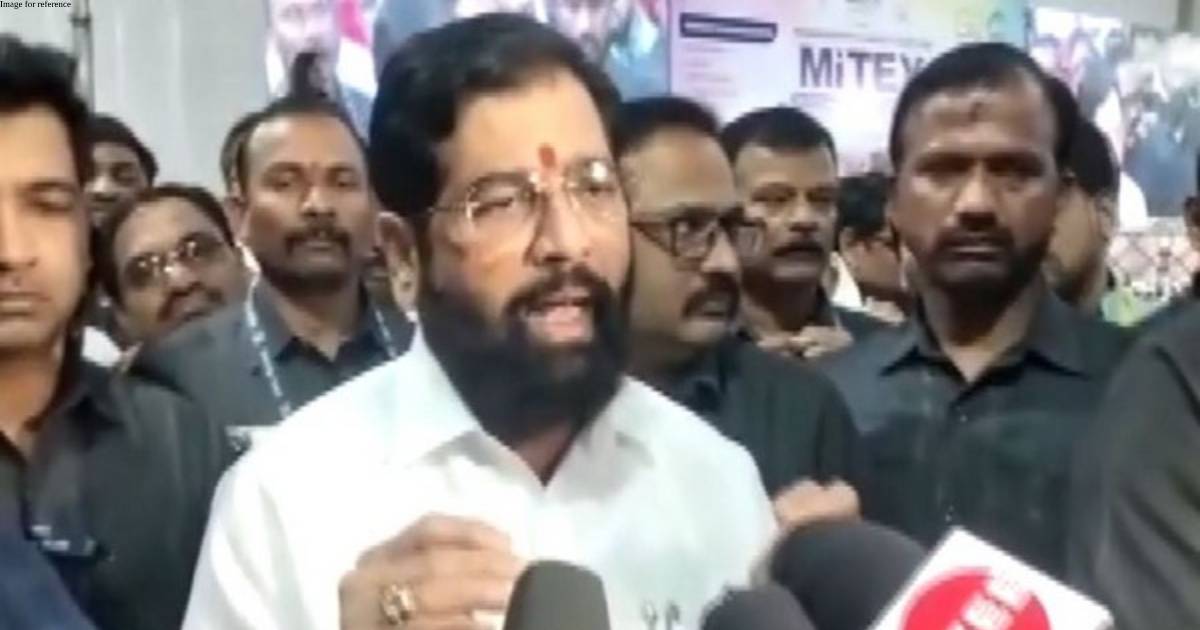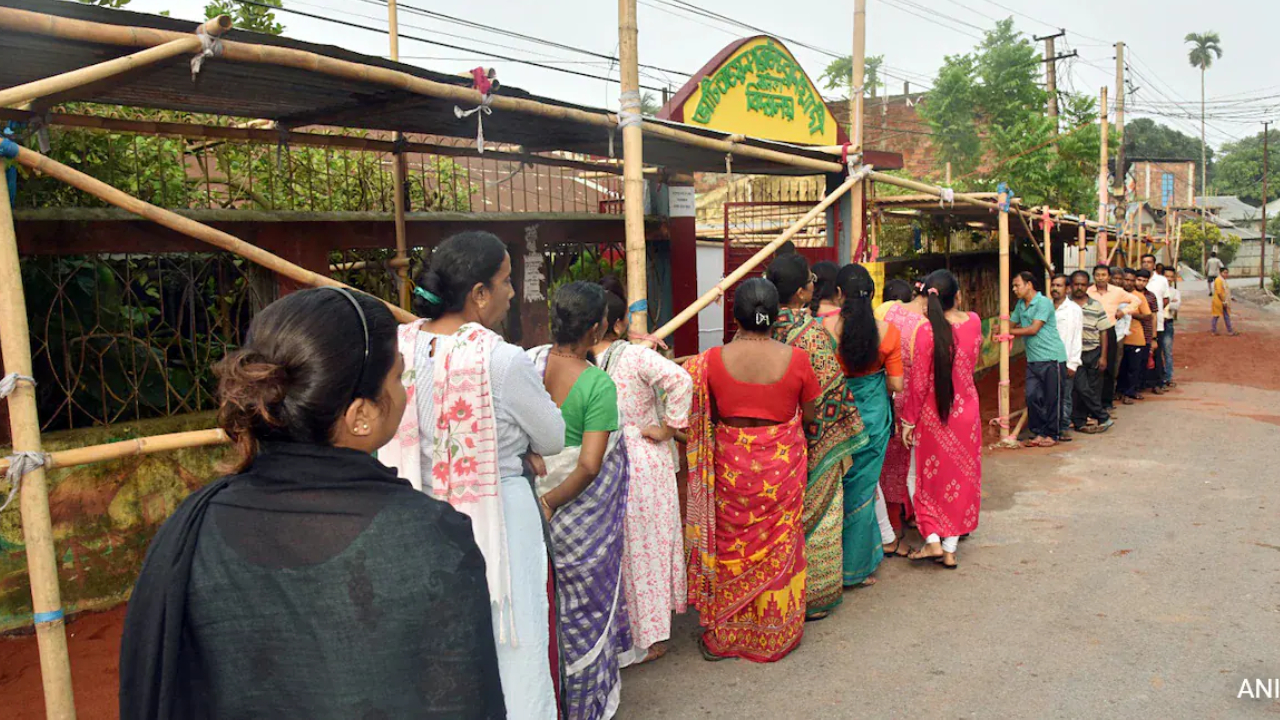Latest News
Majority cardinal in democracy: Eknath Shinde appeals judiciary to pronounce order on 'merit' basis

Mumbai: Reacting to Supreme Court's decision to decide later on referring the cases to a larger seven-judge bench, related to the Maharashtra political crisis, Maharashtra Chief Minister and Balasahebanchi Shiv Sena chief Eknath Shinde on Friday said that the judiciary should pronounce the verdict on 'merit' basis.
Defending his decision to join the pact with the Bharatiya Janata Party and form the government last year, the rebellion leader said, "we have formed the government with adherence to Constitution." "A majority is cardinal in democracy. We have formed the government based on the majority and adhere to the rules, and laws of the Constitution. That is why this government in the state is working for the welfare of the people, taking important decisions for the benefit of the people and that is why we expect the judiciary to take decisions on merit," Shinde told reporters.
Apart from Shinde, Deputy CM Fadnavis said that he is satisfied with today's decision of SC.
"The demand to send the case to a seven-judge constitution bench just to rehear the Nabam Rebia case was not right. The court has said that we will hear the case on merit. We also felt that Uddhav Thackeray's Shiv Sena was implementing a policy of taking time. That is why they demanded a larger Constitution bench. But now that is not the case. A regular hearing will be held and the final verdict will come soon. We are satisfied with today's decision," he said.
Earlier in the day, the apex court's five-judge Constitution bench said it will decide later on referring the cases related to the Maharashtra political crisis to a larger seven-judge bench for reconsideration of a 2016 Nabam Rebia judgment on powers of Assembly Speakers to deal with disqualification pleas.
A five-judge bench of Chief Justice DY Chandrachud and Justices MR Shah, Justice Krishna Murari, Justice Hima Kohli and PS Narasimha said the issue of reconsideration of Nabam Rebia case to the larger bench will be decided during the hearing of the case on merit.
The apex court said whether Nabam Rebia's judgment be referred to a larger seven-judge bench or not can only be decided along with a hearing on the merits of the Maharashtra politics case.
It posted the next hearing of Maharashtra political crisis cases to February 21.
The top court said, "Issue of reference cannot be decided in isolation without facts of the case. Issue of reference will be decided only with merits of the case."
On Thursday, the top court reserved the order after hearing arguments from rival Shiv Sena groups.
Uddhav Thackeray faction of Shiv Sena sought that the five-judge Nabam Rebia case is referred to a seven-judge bench for reconsideration.
In the 2016 Nabam Rebia case, the five-judge Constitution bench had held that Speaker cannot initiate disqualification proceedings when a resolution seeking his removal is pending.
Senior advocate Kapil Sibal, appearing for the Uddhav Thackeray camp of the Sena, submitted that there is an imperative need to reconsider the law laid down in the Nabam Rebia case.
"It's time for us to relook at Nabam Rebia and the 10th Schedule because it has created havoc," Sibal said.
The 10th Schedule of the Constitution provides for the prevention of defection of the elected and nominated members from their political party and contains stringent provisions against defections.
In 2016, a five-judge Constitution bench, while deciding the Nabam Rebia case of Arunachal Pradesh, had held that the Assembly Speaker cannot proceed with a plea for disqualification of MLAs if a prior notice seeking removal of the Speaker is pending decision in the House.
The Nabam Rebia judgment had come to the rescue of the rebel MLAs led by Eknath Shinde, now the chief minister of Maharashtra. The Thackeray faction had sought their disqualification even while a notice of the Shinde group for the removal of Maharashtra assembly deputy speaker Narhari Sitaram Zirwal, a Thackeray loyalist, was pending before the House.
During the course of the hearing, the apex court asked the arguing advocates to address whether the 'tightening' of the 2016 judgment can be undertaken by the five-judge bench currently hearing a batch of petitions arising from the 2022 Shiv Sena-rooted Maharashtra political crisis or be referred to a larger seven-judge bench.
2016 Nabam Rebia's judgment was passed by a five-judge bench and a bench of the same strength cannot interfere with the judgment by a bench of the same strength.
Shinde group cited Nabam Rebia's judgment stating that the deputy Speaker does not have the authority to decide disqualification when a notice for his removal is pending.
While Uddhav Thackeray camp of Shiv Sena argued in favour of revisiting the 2016 verdict saying that a Speaker faced with a notice seeking his removal cannot exercise powers under the 10th Schedule, the faction led by Chief Minister Eknath Shinde said the 2016 Nabam Rebia judgment was not relevant to the issues arising from Maharashtra political crisis.
The Shinde camp has defended the 2016 judgment as correct, which required no relook.
During the hearing of the case, the apex court on Wednesday said that issues arising from the Maharashtra political crisis rooted in the Shiv Sena feud are "tough Constitutional issues" to decide and observed that it may have "tightened" a 2016 judgement.
The apex court was hearing arguments on whether the matter should be heard by a seven-judge bench or a five-judge bench.
A five-judge Constitution bench was hearing a batch of petitions filed by rival factions Uddhav Thackeray and Chief Minister Eknath Shinde in relation to the Maharashtra political crisis. (ANI)

.jpg)
.jpg)
.jpg)
.jpg)
.jpg)

.jpg)
.jpg)
.jpg)
.jpg)
.jpg)
.jpg)
.jpg)
.jpg)
.jpg)
.jpg)
.jpg)
.jpg)

.jpg)
